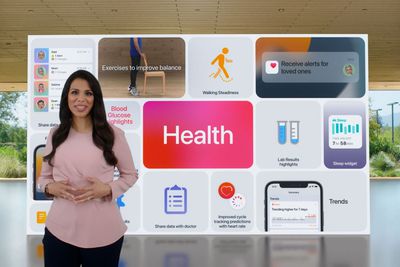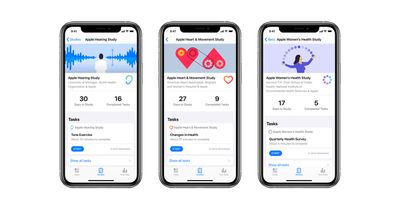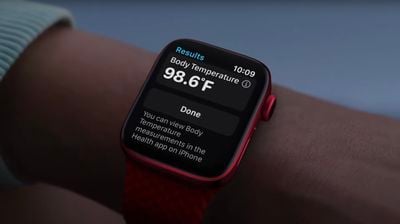Apple has been talking for years about the role it wants to play in human health, led by the Apple Watch and its array of health-related features. With the Apple Watch maturing and Apple increasing its integration of health-focused hardware and software, several pieces of evidence suggest the company is positioning itself for an even bigger expansion in that direction.

According to trends compiled by Linkedin and seen by MacRumors, over the past year, Apple's open job listings in health-related fields have increased by over 220%, with a significant portion of the increase coming in just the last several months. Apple's health-focused hiring has been the fastest-growing segment for the company over the past year, followed most closely by sales and IT specialists, such as in cloud computing and security, according to the data.
Apple has stepped up features and services related to consumers' health over the past several years, with much of the credit being given to the Apple Watch. Apple has slowly transformed the Apple Watch into a more integral health tool, incorporating more sensors, such as blood oxygen, with on-device machine intelligence to notice possibly alarming trends in heart rate and more.
In another sign of its aspirations in health, Apple this week announced that Johnson & Johnson chairman and CEO Alex Gorsky has joined its Board of Directors. Gorsky is a "visionary in healthcare" who brings with him "tremendous insight, experience, and passion for technology to the cause of improving lives and building healthier communities," said Apple CEO Tim Cook. Gorsky joins former Genentech Chairman and CEO Arthur Levinson on Apple's board, giving Apple significant health-related expertise on its board.
As for Apple's job listings, many of them focus on health research rather than specific product development roles. Apple has invested heavily in health research with the Research app, pursuing it as the first step for any future health features on the iPhone or Apple Watch. Apple's health research efforts of course also internally support the development of new products and features.

One particular job listing posted earlier in the summer seeks a manager to "lead human study efforts in collecting data to support development and validation of new health sensors and algorithms." Another job listing seeks a more product-oriented candidate that will "work closely with other designers, writers, engineers, scientists, researchers, and business partners to concept, prototype, and design elegant experiences that help our customers be in control of their health."
Apple has branched out regarding health, moving away from only providing users data from sensors on the iPhone and Apple Watch, but also working with hospitals and medical institutions to create a broader ecosystem. With the Health app on iOS 15, Apple added functionality for users to share health data with family and close friends, COVID-19 vaccine records, blood glucose highlights, and more.
The centerpiece of Apple's health roadmap is the Apple Watch, and reports suggest the watch will continue to mature as an independent health device in the years to come. Users may be able to measure their body temperature and even their blood pressure in future iterations of the Apple Watch.

"Apple's most-important contribution to mankind has been in health," Apple CEO Tim Cook said in an interview in January of 2019, just months after the Apple Watch had gained the ability for users to take an ECG right on their wrist. An Apple spokeswoman declined to comment on the company's recent health-related hiring trends.





















